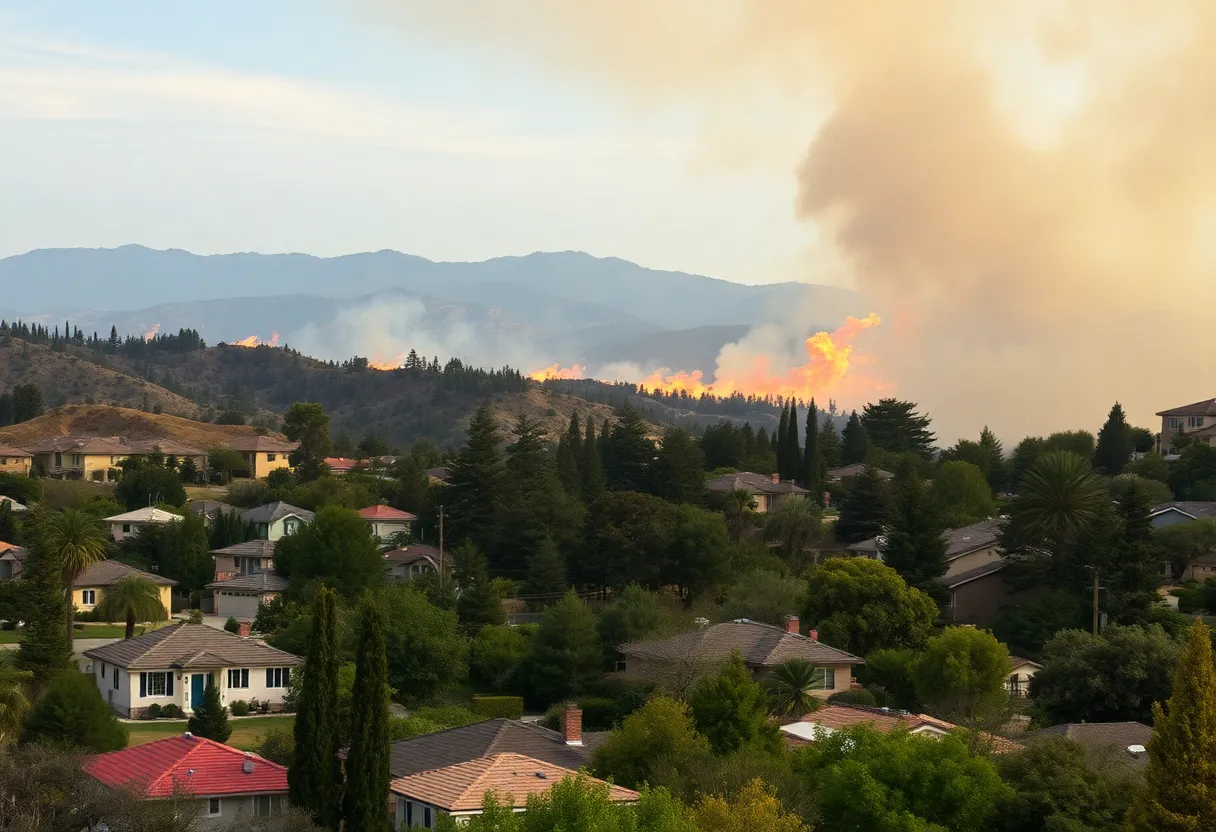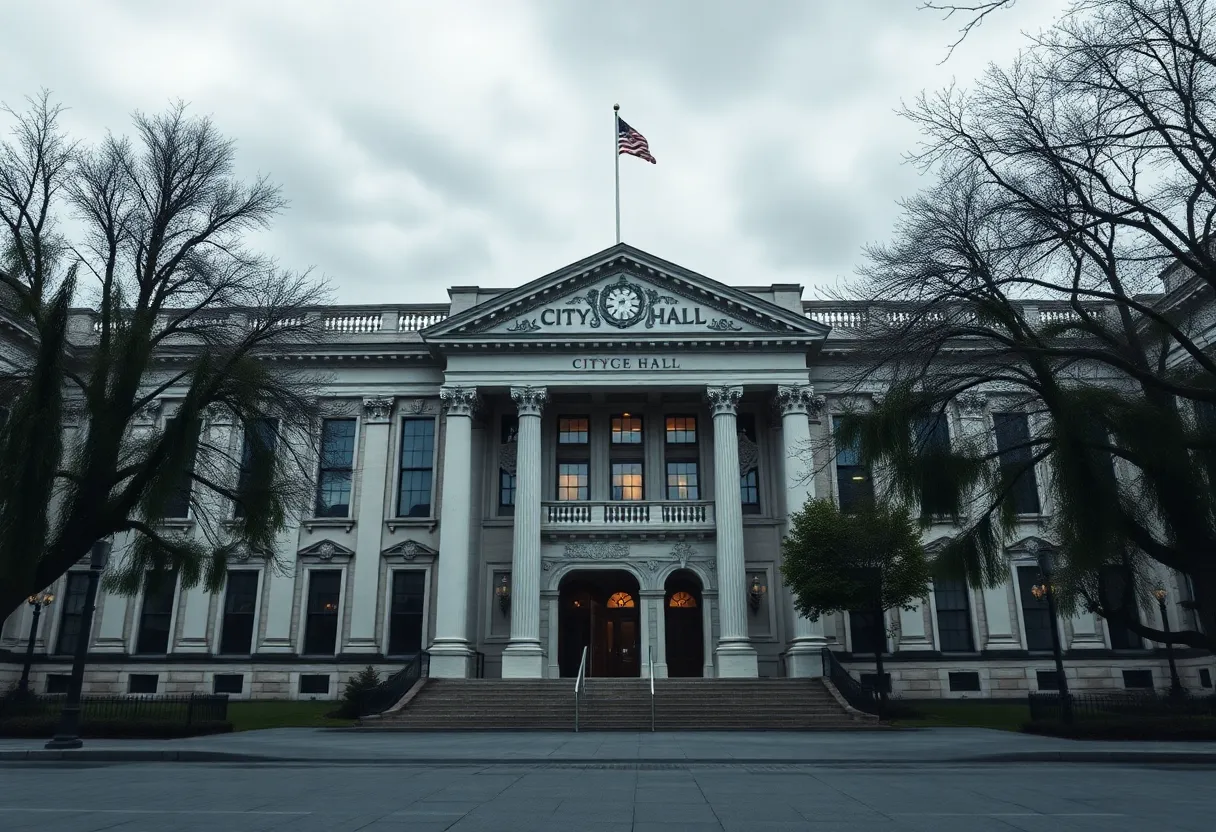News Summary
California Attorney General Rob Bonta is urging a federal court to uphold SB 253, a law mandating corporations to report greenhouse gas emissions. This comes amid challenges from the U.S. Chamber of Commerce claiming First Amendment violations. The law aims to enhance transparency on emissions for large businesses, imposing deadlines for reporting varied greenhouse gas emissions. California’s Air Resources Board has offered leniency for initial compliance, but significant penalties await non-compliant companies. The initiative reflects California’s commitment to tackling climate change through corporate accountability and transparency.
California Attorney General Rob Bonta has taken a significant legal step by urging a federal court to allow the state to enforce its corporate emissions reporting statute, a law designed to address greenhouse gas emissions by requiring large corporations to disclose detailed emissions data. This move comes as a business group, led by the U.S. Chamber of Commerce, seeks to challenge the legality of the law, known as SB 253, which was enacted in 2023. The attorney general argues that enforcing the law would not cause irreparable harm to businesses during the ongoing litigation process.
The legal battle centers around California’s Climate Corporate Data Accountability Act (CCDAA), which mandates that public and private companies with over $1 billion in annual revenues operating in California must report their Scope 1, Scope 2, and Scope 3 greenhouse gas emissions. The deadlines for reporting are firmly set, with Scope 1 and Scope 2 emissions reports due in January 2026, covering emissions data from the fiscal year 2025. Companies are expected to provide Scope 3 emissions reports by 2027. This requirement aims to enhance transparency regarding corporate emissions and address climate-related financial risks.
The U.S. Chamber of Commerce initiated a lawsuit against California in 2024, claiming that SB 253 infringes upon First Amendment rights. The state’s legal team argues that withholding the enforcement of the law could hinder California’s efforts to combat climate change and provide accurate information regarding corporate emissions. The state’s case gained traction when the Supreme Court dismissed certain parts of the business groups’ challenge against both SB 253 and another related law, SB 261, thereby allowing the litigation to progress.
In a supportive move towards businesses navigating these new requirements, California’s Air Resources Board (CARB) announced it would not impose penalties for incomplete or inaccurate reporting during the first reporting cycle if companies demonstrate good faith efforts to comply. This decision aims to facilitate a smoother transition for businesses adapting to the new emissions reporting framework.
Further adjustments to the reporting timeline were made when the California legislature passed SB 219, extending CARB’s deadline to adopt necessary regulations from January 1, 2025, to July 1, 2025. However, this extension does not defer compliance deadlines for companies required to report emissions.
As part of the legislative framework, businesses are required to submit emissions data that aligns with the information they possess or can reasonably collect by the time of the Enforcement Notice. Failure to comply could result in substantial penalties, potentially reaching up to $500,000 for noncompliance. Additionally, the law mandates third-party assurance assessments to verify the credibility and accuracy of emissions reports.
Companies preparing to meet compliance should evaluate whether they surpass the revenue threshold stipulated in SB 253 or SB 261 and establish effective systems for tracking and reporting greenhouse gas emissions. The implications of California’s stringent laws may inspire other states, including New York and New Jersey, to develop their climate accountability legislation, furthering the movement toward corporate transparency in emissions practices across the nation.
The implementation of SB 253 signifies California’s commitment to addressing climate change by ensuring corporate accountability and transparency regarding emissions. As the legal proceedings unfold and businesses adjust to comply with new regulations, the implications for corporate environmental responsibility and future policy development will be closely monitored.
Deeper Dive: News & Info About This Topic
- V&E Insights: California Provides Flexibility on Greenhouse Gas Emissions Reporting Law
- Ropes & Gray: California Issues Important Enforcement Guidance for Its New GHG Emissions Disclosure
- Supply Chain Brain: A Plan of Action for Complying with California’s Emissions Reporting Bill
- Wikipedia: Greenhouse Gas Emissions
- Daily Journal: Red Tape or Green Future — Unpacking California’s Climate Disclosure Laws and the Pushback
- Google Search: California Climate Disclosure Laws

Author: Anaheim Staff Writer
The Anaheim Staff Writer represents the experienced team at HEREAnaheim.com, your go-to source for actionable local news and information in Anaheim, Orange County, and beyond. Specializing in "news you can use," we cover essential topics like product reviews for personal and business needs, local business directories, politics, real estate trends, neighborhood insights, and state news affecting the area—with deep expertise drawn from years of dedicated reporting and strong community input, including local press releases and business updates. We deliver top reporting on high-value events such as major conventions at the Anaheim Convention Center, including NAMM and VidCon, exciting games at Angel Stadium and Honda Center, and developments at Disneyland Resort Our coverage extends to key organizations like the Anaheim Chamber of Commerce and Visit Anaheim, plus leading businesses in hospitality, entertainment, and innovation that power the local economy As part of the broader HERE network, including HERECostaMesa.com, HEREHuntingtonBeach.com, HERESantaAna.com, and HERELosAngeles.com, we provide comprehensive, credible insights into Southern California's dynamic landscape.




